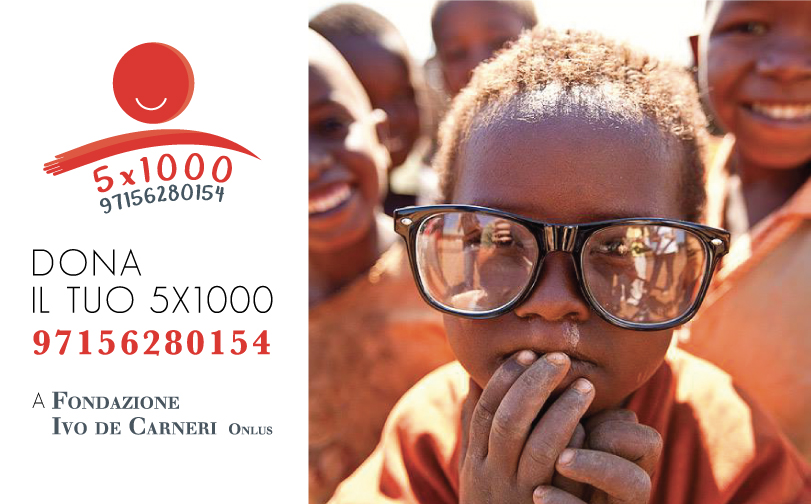1994:
The Ivo de Carneri Foundation was established following the sudden death of Professor Ivo de Carneri. One of the Foundation’s first priorities was to create a public health laboratory on Pemba Island (Zanzibar) in order to provide support for public health programs in the area. The Laboratory was an idea Ivo de Carneri had expressed in 1988 while on a mission to Pemba on behalf of the Italian Ministry of Foreign Affairs.
In the same year, the “Ivo de Carneri Award” was established in collaboration with the Italian Parasitology Society, to reward young researchers from sub-Saharan Africa.
1995:
The first meeting between the Foundation and the Ministry of Health and Social Welfare (MoHSW) of Zanzibar took place, in order to discuss the public health laboratory project. The Laboratory was named after Professor Ivo de Carneri in response to the local Ministry of Health’s wishes (Public Health Laboratory – Ivo de Carneri (PHL-IdC).
1995:
The first official meeting between the Zanzibar Ministry of Health and Welfare and the IdCF took place. Here, the Ministry and the Foundation discussed the construction of the Public Health Laboratory on Pemba Island, which the local authorities subsequently dedicated to Professor Ivo de Carneri (Public Health Laboratory Ivo de Carneri, PHL-IdC).
1996:
The Foundation obtains recognition from the Italian Ministry of Health on February 1st (n. 96A1550).
1997:
An Agreement was signed between the Foundation and the Zanzibar Ministry of Health and Social Welfare (MoHSW) for the construction and use of the PHL-IdC. The MoHSW donated the land where the PHL-IdC was built and the Ivo de Carneri Foundation took responsibility for the fundraising from public and private donors for the construction. It was also agreed that the Public Health Laboratory Ivo de Carneri (PHL-IdC) would be commonly managed by a Commission formed by two members from the MoH, two from the Foundation, and one external observer from the World Health Organization (WHO).
With the generous support of its Scientific Committee, the Foundation published the 12th edition of Professor de Carneri’s university textbook Parassitologia generale e umana. The 13th edition is now available.
1998-1999:
It took two years to complete the construction of the laboratory. In the meantime, the Foundation promoted training and public awareness campaigns including specialized courses, conferences, and workshops on parasitic diseases.
1999:
The Foundation obtains recognition as a non-profit organization by the Ministry of Health (DM n. 99A3085). At the World Health Organization (in Geneva), the Scientific Commission of the PHL-IdC had its first meeting to define its mission, strategy, and organization.
2000:
PHL-IdC was officially opened on June 12th and began its research, public health programs, and training courses.
The same year, the Foundation opened a local office called the Ivo de Carneri Foundation – Zanzibar Branch, recognized locally as an NGO and run by a local resident representative, Mr Yahya Al Sawafy.
2002:
Due to its’ activities in Africa, the Foundation obtains recognition as an NGO from the Italian Ministry of Foreign Affairs.
2003:
Under the sister-city agreement between the Commune of Cles (TN) and the District of Chake Chake, The Mother-Child Dispensary of Gombani was born; the dispensary had been restructured thanks to the mediation of the Foundation.
2004-2005:
The Foundation launched several projects within the field of research on parasitic diseases and nutrition.
2005:
The project “Safe Water” is launched. The project was aimed toward the sanitation of water on the island of Pemba, allowing the containment of intestinal infections (including cholera) and bettering overall health conditions.
2009:
The Foundation launches an important project for the improvement of the production of milk and meat. It was the first project with the goal of improving health conditions through the betterment of socio-economic conditions.
2013:
Together with the Province of Trento and with contributions from the Trento Cooperative Society, the Foundation launches a project for sustainable agricultural development.
2014:
With the collaboration of the NGO Amici del Mondo-World Friends ONLUS, the project “Physiotherapy and Motor Rehabilitation” is launched.
2015:
The editorial initiative Collana Fronteretro is born. With this literary series, we strive to spread knowledge about the oft-forgotten problems of diseases and their connection to poverty.
2016:
The Foundation carried out a course on “Tropical Medicine and Global Health”, after obtaining sponsorship from the Zanzibar Ministry of Health and from the Italian Ministry of Foreign Affairs and International Cooperation. The Foundation also completed the project “Strengthening Basic Healthcare Units”.
Today:
The Foundation is still involved in running the PHL-IdC as an independent institution and in guaranteeing its progress towards independent, sustainable existence. Since 2000, the Foundation has promoted several international cooperation projects on the theme of public health interventions and training courses.





